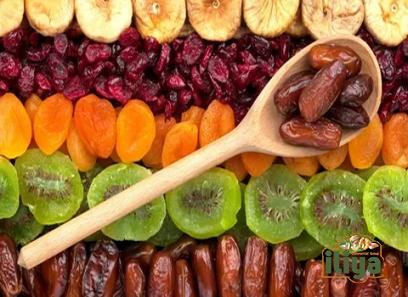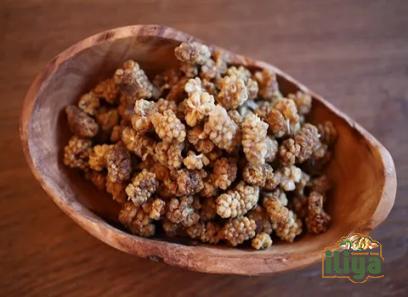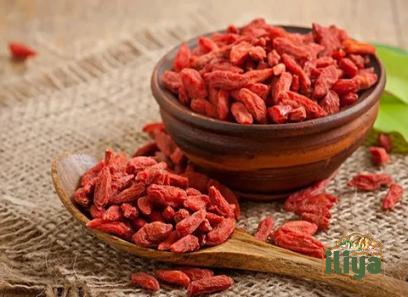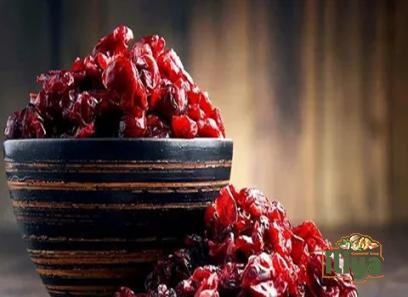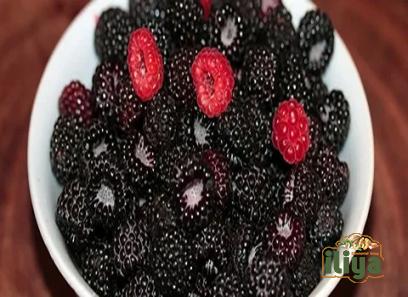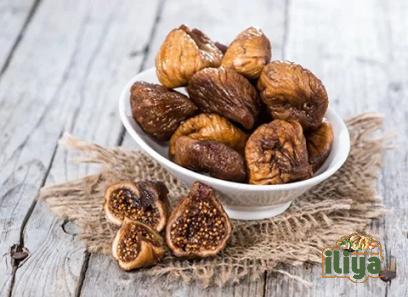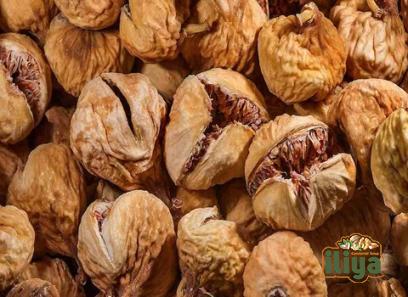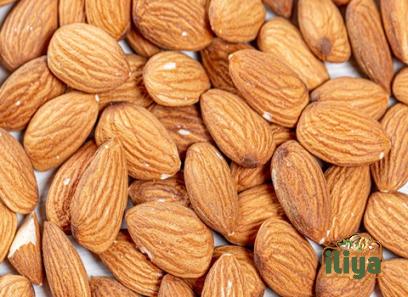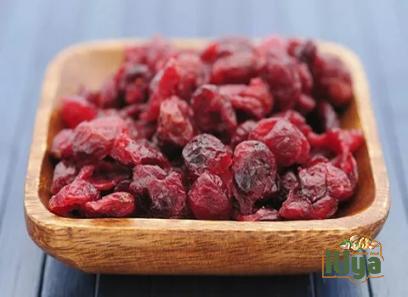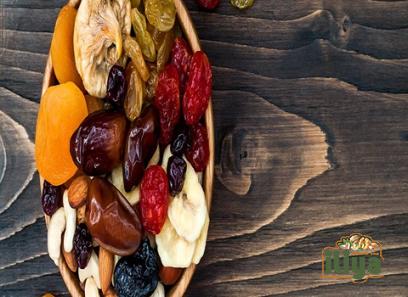Cashew seeds, also known as cashew nuts, are highly regarded for their rich flavor and nutritional value. They are derived from the cashew tree (Anacardium occidentale), which is native to Brazil and is now cultivated in various tropical regions around the world. Cashews are a popular snack and ingredient in many cuisines, and they also have several health benefits. In this summary, we will explore the origins, cultivation, processing, and uses of cashew seeds.
The cashew tree is a small evergreen tree that belongs to the same family as mangoes and pistachios. It can reach a height of up to 12 meters and has a spreading canopy of leaves. The peculiar process of cashew development on the tree is intriguing: the cashew seed is actually encased in a fleshy fruit called the cashew apple. The cashew apple is edible and has a sweet taste, but it is the seed, or nut, that is the most commercially valuable part of the cashew fruit.
Cashew trees thrive in tropical regions with a combination of high temperatures and plentiful rainfall. They are primarily cultivated in countries such as India, Vietnam, Nigeria, Brazil, and Ivory Coast. India is the largest producer and exporter of cashew nuts, followed by Vietnam and Nigeria. The production process starts with planting cashew seeds in nurseries and then transplanting the seedlings to the field once they reach a certain size.
Cashew trees are typically grown in orchards and require careful management to ensure optimal growth and productivity. They need well-drained soil and regular watering, especially during the dry season. Cashew trees also benefit from proper pruning to maintain their shape and enhance fruit production. The trees take around three to five years to start bearing fruit, and they reach their full potential after about ten years.
When the cashew fruits are ripe, they are carefully harvested by hand to avoid damaging the seeds. The cashew apple is separated from the seed, and the seed is then sun-dried to reduce its moisture content. The cashew seed is enclosed in a hard shell, which must be removed to access the edible nut inside. The removal of the shell is a labor-intensive process and is typically done manually by skilled workers. The shell contains a toxic substance called urushiol, which can cause skin irritation, so it is crucial to handle the shells with care.
Once the shells are removed, the cashew nuts are further processed to ensure they are safe for consumption. They undergo a heat treatment process to neutralize any remaining toxic substances. This process involves roasting the nuts at high temperatures, which also enhances their flavor. After roasting, the cashews are typically graded based on their size, color, and quality.
Cashew nuts are widely used in cooking and baking due to their delicious taste and versatile nature. They have a rich and buttery flavor that adds depth to a variety of dishes. Cashews can be eaten raw, roasted, or salted, and they are also commonly used to make cashew butter, cashew milk, and various dairy-free alternatives. Additionally, cashews are a popular ingredient in many desserts, such as cookies, cakes, and ice creams.
Apart from their culinary uses, cashew nuts offer several health benefits. They are a good source of healthy fats, protein, dietary fiber, vitamins, and minerals. Cashews are particularly rich in monounsaturated fats, which are considered heart-healthy fats that can help reduce bad cholesterol levels and lower the risk of heart disease. They also contain antioxidants, such as vitamin E and selenium, which protect the body against oxidative stress and cell damage.
Cashews are a good source of plant-based protein and can be a valuable addition to vegetarian and vegan diets. They also have a low glycemic index, which means they have a minimal impact on blood sugar levels, making them suitable for individuals with diabetes or those following a low-carbohydrate diet. Additionally, cashews are rich in minerals like magnesium, zinc, and phosphorus, which are essential for maintaining optimal bone health.
In conclusion, cashew seeds are a popular and versatile nut with a distinctive flavor and numerous health benefits. The cashew tree, from which the nuts are harvested, is indigenous to Brazil but is cultivated in many tropical regions worldwide. The production process involves careful cultivation, harvesting, and processing to ensure the safety and quality of the cashew nuts. Cashews are widely used in cooking, baking, and as a standalone snack, and they offer various health benefits, including healthy fats, protein, vitamins, and minerals. With their delicious taste and nutritional profile, cashews continue to be a sought-after ingredient in cuisines around the world.I. Introduction to Cashew Industry
The cashew industry is a thriving sector that encompasses various aspects, from cultivation and processing to distribution and sales. This section will provide an overview of the business opportunities and challenges in the cashew industry.
A. Global Cashew Market Overview
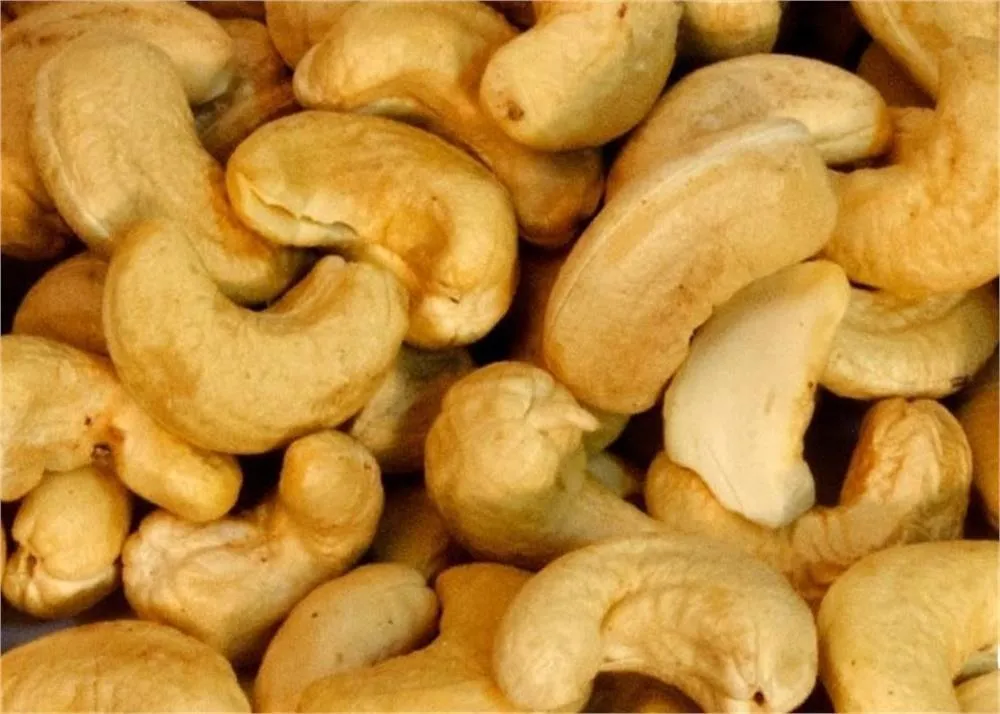
The global cashew market has experienced significant growth in recent years, driven by increasing consumer demand for healthy and convenient snacks. According to market research, the global cashew market is expected to reach a value of $6.5 billion by 2025. The rising popularity of plant-based diets and the health benefits associated with cashews have contributed to this growth.
B. Key Players in the Cashew Industry
Several key players dominate the cashew industry, including both large-scale processors and smaller, specialty producers. Some of the notable companies in the cashew industry include Olam International, Agro Bóbala, and CBL Natural Foods. These companies have established robust supply chains and have invested in advanced processing technologies to meet the growing demand for cashews.
C. Challenges and Opportunities
While the cashew industry presents lucrative opportunities, there are significant challenges that businesses must navigate. One of the major challenges is the volatility of cashew prices, which can fluctuate due to factors such as weather conditions, crop yields, and global economic trends. Additionally, ensuring a consistent supply of high-quality cashews and maintaining sustainable farming practices are essential considerations for businesses operating in the industry.
II. Cashew Cultivation and Processing
Cashew cultivation and processing are critical stages in the cashew industry. This section will delve into the process of growing cashew trees and the subsequent processing of cashew nuts.
A. Cashew Tree Cultivation
Cashew trees require specific conditions to thrive and produce high-quality fruit. They thrive in tropical climates with sandy, well-drained soil and require an average annual rainfall of around 1,200 to 1,800mm. The cultivation process involves selecting suitable varieties, preparing the land for planting, and establishing nurseries to grow cashew seedlings. Proper irrigation, pest control, and regular pruning are also essential in ensuring healthy tree growth.
B. Cashew Fruit Harvesting
Cashew fruits typically ripen within 2-3 months after flowering. Harvesting involves manually picking the ripe cashew apples from the trees. The cashew apples are hand-separated from the cashew nuts, as the nut is attached to the bottom of the apple. The cashew apple can be consumed or used to make various products, such as beverages and jams.
C. Cashew Nut Processing
After the harvest, the cashew nuts undergo a series of processing steps to make them suitable for consumption. The first step is sun-drying the raw cashew nuts to reduce their moisture content. Once dried, the nuts are then roasted to remove the outer shell. This roasting process also enhances the flavor of the cashews. After roasting, the nuts are graded based on their size, color, and quality. Packaging and storage are the final steps in the processing stage.
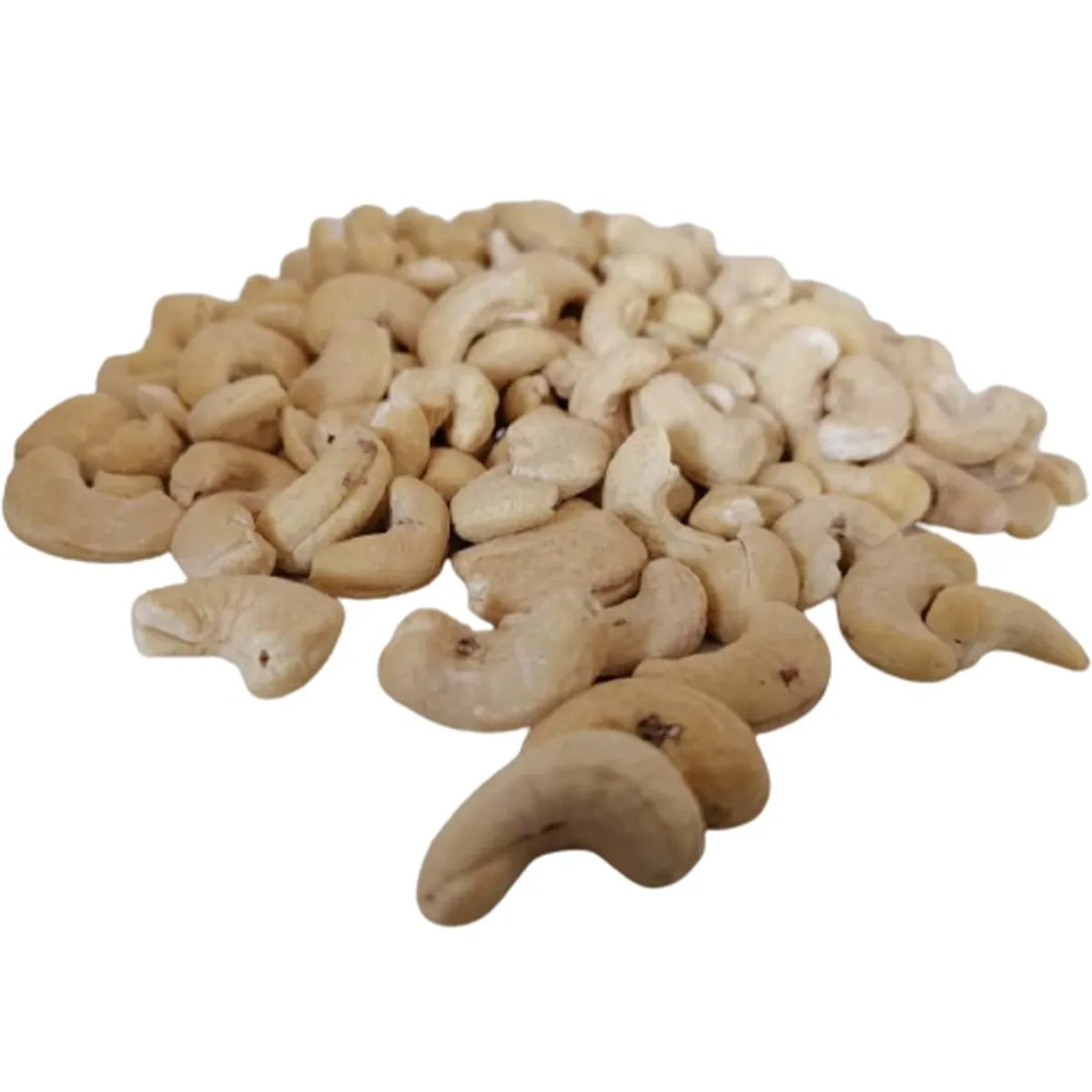
III. Cashew Nut Products and Applications
Cashew nuts are incredibly versatile and can be used in various products and applications. This section will highlight the different ways cashew nuts are used in the food and beverage industry, as well as in non-food applications.
A. Culinary Uses and Snack Industry
Cashew nuts are a popular ingredient in the culinary world, adding flavor and texture to a wide range of dishes. They are commonly used in stir-fries, curries, salads, and desserts. In the snack industry, cashews are often roasted, salted, or flavored to create a delicious and nutritious snack option. Cashew butters and creams are also becoming increasingly popular as a healthy alternative to traditional spreads.
B. Dairy Alternatives
Cashew milk has gained popularity as a dairy alternative for those who are lactose intolerant or follow a vegan lifestyle. Cashew milk is creamy, nutty, and can be used in various recipes, including coffee, smoothies, and baking. Additionally, cashew-based cheeses and ice creams have gained traction in the market, providing plant-based alternatives for dairy products.
C. Non-Food Applications
In addition to their culinary uses, cashew nuts have various non-food applications. Cashew shell oil, derived from the cashew nut shell, is used in various industries, including automotive, rubber, and electrical. The cashew nut shell liquid (CNSL) is rich in phenolic compounds and is used in the production of resins, friction linings, paints, and varnishes.
IV. Health Benefits of Cashew Nuts
Cashew nuts are not only delicious but also offer several health benefits. This section will delve into the nutritional profile and health advantages associated with consuming cashew nuts.
A. Nutritional Profile
Cashew nuts are nutrient-dense and offer a rich array of vitamins, minerals, and macronutrients. They are an excellent source of healthy fats, particularly monounsaturated fats, which have been linked to reducing the risk of heart disease. Cashews are also a good source of protein, dietary fiber, vitamins like E and B6, and minerals such as magnesium, phosphorus, and zinc.
B. Heart Health
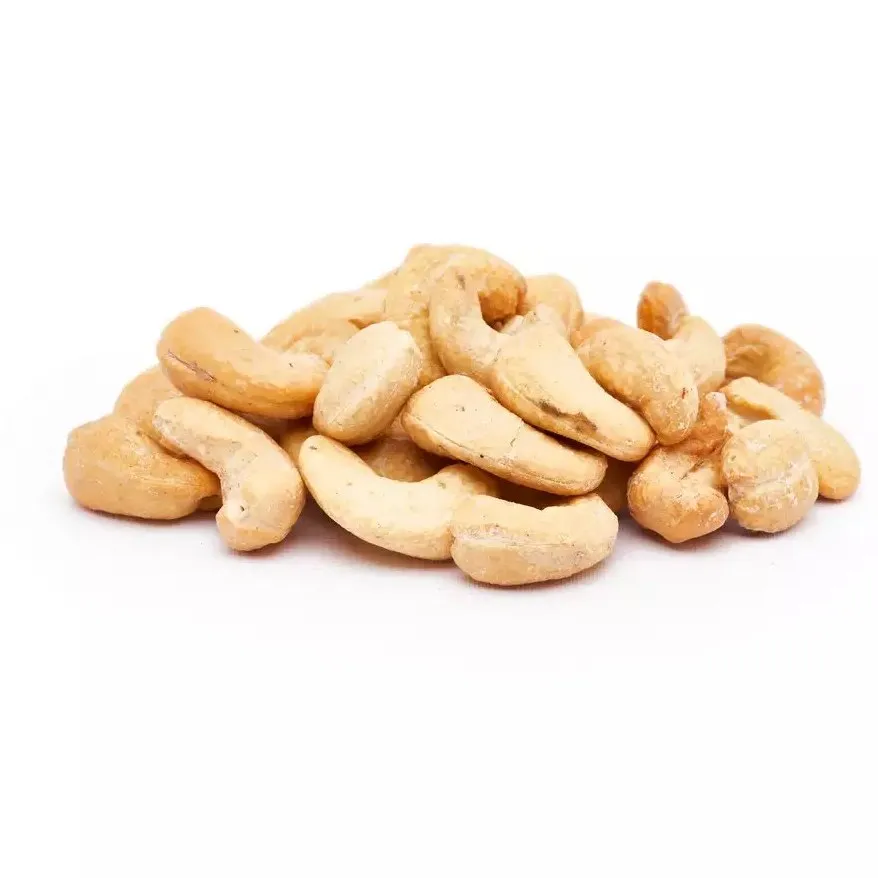
The monounsaturated fats found in cashews, along with other beneficial compounds, help to promote heart health. These fats have been shown to help lower LDL (bad) cholesterol levels and reduce the risk of cardiovascular diseases. Cashews also contain antioxidants, such as vitamin E, that help protect the heart from oxidative damage.
C. Blood Sugar Control
Cashew nuts have a low glycemic index, which means they have a minimal impact on blood sugar levels. This makes them a suitable snack option for individuals with diabetes or those looking to manage their blood sugar levels. The combination of healthy fats, fiber, and protein found in cashews helps slow down the digestion and absorption of carbohydrates, preventing sharp spikes in blood sugar levels.
V. Cashew Industry Sustainability
Sustainability plays a crucial role in the cashew industry. This section will explore the efforts being made to ensure sustainable cultivation, processing, and trade practices within the cashew industry.
A. Environmental Considerations
Sustainable cashew cultivation focuses on reducing the environmental impact of farming practices. This includes implementing efficient irrigation systems, adopting organic and agroforestry practices, and utilizing renewable energy sources. Additionally, sustainable farming practices aim to protect biodiversity, conserve water resources, and minimize the use of synthetic chemicals.
B. Social Impact
The cashew industry offers significant economic opportunities for farmers in developing countries. Sustainable practices aim to ensure fair wages, safe working conditions, and access to education and healthcare for workers involved in cashew production. Various initiatives and certifications, such as Fairtrade and Rainforest Alliance, promote ethical labor practices and support community development.
C. Trade and Supply Chain Transparency
Promoting transparency in the cashew supply chain is essential to ensuring sustainable practices. Traceability systems and certification programs help track the origin of cashews and ensure they are produced in an environmentally and socially responsible manner. These initiatives provide consumers with the confidence that their purchase supports sustainable and ethical practices.
VI. Conclusion
The cashew industry offers numerous opportunities for businesses in the cultivation, processing, and distribution sectors. With increasing consumer demand for healthy snacks and versatile plant-based ingredients, cashew nuts have become a sought-after commodity in the global market. By adopting sustainable practices, prioritizing product quality, and capitalizing on the health benefits of cashew nuts, businesses can position themselves for success in this dynamic industry.

